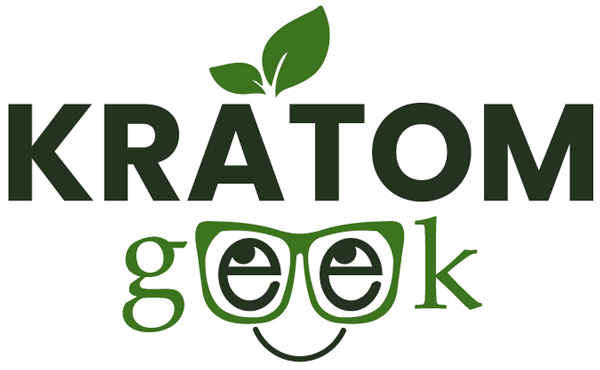The plant Mitragyna speciosa is fascinating. It’s a leaf that grows in Southeast Asia that has numerous advantages for consuming it. A few of those are health benefits. But some of those rewards from taking kratom are because the plant actually helps with certain physical ailments, according to scientific studies that suggest it. Even though researchers stay busy explaining how kratom can help the medical community with specific conditions, we have to understand that nothing is set in stone at the moment. There is no unified consensus in the scientific community regarding the plant’s properties yet. So, no kratom company should make any medical claims about the plant.
And that’s not a slight against kratom, either. Other botanical industries have to follow the same guidelines. CBD and cannabis companies (two of the largest botanical products on the market right now) can’t claim those substances alleviate or cure any type of medical condition, even with scientific studies that suggest it, too. Hell, there are even a few drugs that are derived from cannabinoids, but the Food and Drug Administration (FDA) still hasn’t given the cannabis industry any leeway to promote the fact.
The FDA requires that all drugs have to be approved before they’re marketed to the public as such. Anyone who tries to go around that requirement may find themselves taking on the federal government in court. We’ve witnessed this happen a few times in the past with different products. Last year, a kratom company dealt with those same repercussions.
Nomad Botanicals Is Investigated by the FDA
Kratom companies have repeatedly found themselves under scrutiny by the FDA. The federal agency has wanted to ban kratom for years. So whenever a chance arises for them to make an example out of one of the known kratom companies, they jump at the opportunity. We witnessed a prime example of this a couple of years ago when a salmonella outbreak was tied to kratom products. The FDA used the media to bombard the airwaves of mainstream media with the news. But, last year, the FDA found another kratom company to use to further its agenda against kratom.
In Michigan, a man named Matthew Dailey had started his very own kratom company. He named it Nomad Botanicals and created its website. And according to the archived site, Matthew used to sell kratom (which he marketed as incense), kava, seeds, and a few other botanical substances to consumers. And he seemed to be doing relatively well in the industry: there wasn’t as much competition at that time. Within a few years, he had sold over a million dollars’ worth of kratom.
But, after a while, Matthew Dailey’s company found itself targeted in a federal investigation for selling kratom products.
Look, there is nothing wrong with selling kratom in the United States. It’s perfectly legal on the federal level. Though, six states have banned kratom, as well as a few municipalities. However, the company Nomad Botanicals didn’t sell kratom to any of those areas. Instead, it was illegally marketing its kratom products.
Nomad Botanicals’ Website was not FDA Compliant
Instead of selling kratom as a natural supplement as companies are supposed to do, Nomad Botanicals marketed kratom as a drug that could help treat a large variety of diseases and illnesses. Only drugs that have been approved by the FDA can be marketed as cures or treatments in the US. And technically, the business would need to be in the pharmaceutical industry, too.
But Nomad Botanicals continued claiming on its website that kratom could treat chronic pain, Lyme disease, rheumatoid arthritis, and fibromyalgia. It also distributed kratom for the purposes to be used to treat opiate withdrawal. For people with opioid prescriptions, the company stated the patients could easily substitute their pills for kratom products, wanting to circumvent the medical advice given by doctors and make another sale.
Matthew Dailey went further by trying to outmaneuver the FDA whenever the agency started investigating by portraying his imported kratom shipments as incense, paint pigments, and other substances that aren’t intended for human consumption. During the investigative period, the company had fraudulently imported tons of kratom in this manner to sell online.
Furthermore, Dailey had been using his residence for manufacturing the kratom products he sold. He would package and repackage all his goods in his home with no specific area set up to maintain the regulated Current Good Manufacturing Practices (CGMP) required by law. And he never registered his personal property as a facility for manufacturing processed drugs, as required by law under the Food, Drugs, and Cosmetic Act (FDCA).
The Owner of the Kratom Company Received Criminal Charges
Matthew Dailey pleaded guilty to the crimes brought against him on January 8th, 2019. But it would be a few more months before he dealt with his sentencing. And in between that time, a local police force waited for the opportune moment to issue its calculated kratom disinformation strategy. The Metro Detroit police issued a warning on kratom about a week prior to Matthew’s sentencing, supplying misinformation about kratom to people in the region. The police district knew about the case and was using the chance to work on people’s fears for the coming week ahead.
Then, shortly after, on May 8th, 2019, Matthew Dailey was sentenced to two years in prison for selling kratom illegally through unapproved medical claims, saying kratom could treat serious diseases and medical conditions. One of those claims was for opiate withdrawal. And even though there are research papers that suggest kratom could potentially be used for the condition, no company can market kratom that way without FDA approval. So kratom vendors must never tout any of the plant’s medicinal values on any of their websites.
Besides receiving a two-year sentence in prison, the FDA issued an order under the FDCA that debarred Matthew Dailey from importing or offering for import any drug into the United States. And since the FDA looks at kratom as a drug, the act would prohibit Dailey from ordering kratom again for the following decade. The government also forced Dailey to forfeit $1,000,000 of the proceeds his company had earned.
Kratom Companies Must Remain FDA Compliant
One day, the scientific community might announce that the results of multiple scientific experiments provide a unanimous agreement from doctors that kratom alkaloids have medicinal properties. But that’s something nobody can rush. It takes a long time before pharmaceutical companies can prove a compound treats a medical condition. And that’s also the case from plant-based medications. Pharmaceutical companies have studied molecules derived from plants for decades. Some of those alkaloids have scientific research that dates back to over a century.
A few studies that suggest or link correlation in an experiment are not equal to a scientific certainty. And that’s something the kratom industry needs to remember. The kratom market has a lot of new vendors jumping into the fray, trying to become the next lucrative kratom business in the industry. But not every kratom company is maintaining an FDA compliant website. Several companies are using the same tactics that Nomad Botanicals did. And those actions can have a ripple effect on the other companies who are marketing their products legitimately.
If the kratom industry allows another instance, like what happened to Matthew Dailey, to make national headlines in the news again, it will have detrimental effects. The Department of Justices described kratom as “a powerful psychoactive substance” in its press release. And that remark was followed by news of a conviction for selling it. This type of political propaganda manipulates the general public. It’s akin to psychological warfare against kratom products. And that’s something we must try to stop.






